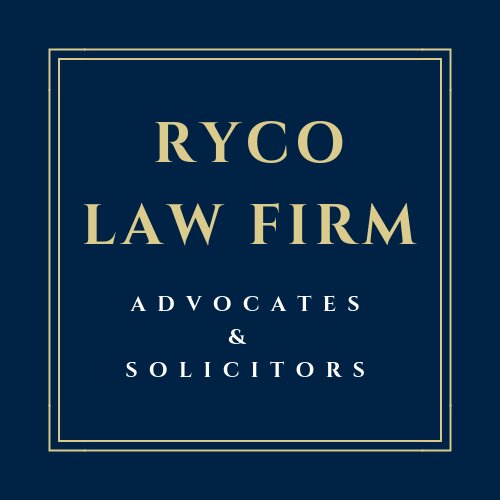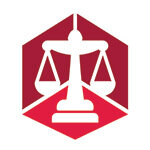Best Creditor Lawyers in Kota Kinabalu
Share your needs with us, get contacted by law firms.
Free. Takes 2 min.
List of the best lawyers in Kota Kinabalu, Malaysia
About Creditor Law in Kota Kinabalu, Malaysia
Creditor law in Kota Kinabalu, Malaysia, involves the legal processes and regulations associated with the relationship between creditors and debtors. This area of law focuses on the rights of creditors to collect debts that are owed to them, as well as the responsibilities of debtors in repaying those debts. The legal framework governing these interactions is mainly derived from the National Land Code, Companies Act, and Insolvency Act, among other legal statutes. Legal proceedings related to creditors in Kota Kinabalu can involve debt recovery, bankruptcy proceedings, lien enforcement, and other financial disputes.
Why You May Need a Lawyer
Individuals or businesses may require the services of a lawyer in creditor-related matters for several reasons:
- Debt Recovery: Assistance in pursuing debts owed by individuals or businesses.
- Bankruptcy Proceedings: Legal guidance for both creditors and debtors involved in bankruptcy cases.
- Negotiating Settlements: Aid in negotiating terms for debt repayment or restructuring.
- Enforcement of Judgments: Help in enforcing court judgments for unpaid debts.
- Asset Repossession: Legal advice on repossessing assets when agreements are defaulted.
- Preparation of Legal Documents: Assistance with drafting and filing necessary legal documents related to debt collection.
Local Laws Overview
In Kota Kinabalu, creditor-related legal issues are primarily governed by several key aspects:
- Debt Recovery Procedures: Legal processes which enable creditors to pursue outstanding debts through notifications, negotiations, and potential court actions.
- Bankruptcy Act 1967: Regulates insolvency issues, setting out the rights and obligations of both creditors and debtors.
- Security Interests: Governed by the Personal Property Securities Act, which stipulates how security interests are registered and enforced over personal property.
- Judicial Procedures: Creditor actions often require navigating through local judicial procedures to obtain orders for debt recovery or enforcement of claims.
Frequently Asked Questions
What should I do if someone owes me money in Kota Kinabalu?
It's important to gather all documentation relevant to the debt and consider seeking legal advice on the appropriate steps to take, which may include sending a demand letter or commencing legal action.
Can I declare someone bankrupt if they owe me money?
You may file a bankruptcy petition against a debtor if the debt exceeds RM50,000 and the debtor has failed to pay, but it's recommended to seek legal advice to navigate the complexities of the process.
How long does it take to recover a debt legally?
The duration can vary based on the complexity of the case, the debtor’s cooperation, and the court schedule. Simple cases might be resolved in a few months, while others could take longer.
What is the statute of limitations for debt collection in Malaysia?
Under Malaysian law, the statute of limitations for most contract-based debt recovery is six years from the date the debt was due.
Can a creditor repossess my property?
Repossession is possible if the property was put up as collateral in a secured debt agreement, but creditors must adhere to legal procedures to repossess assets.
Are verbal agreements enforceable for creditor claims?
While verbal agreements can be enforceable, proving the terms can be difficult, making written agreements generally more reliable in court.
What should I do if I am being harassed by a creditor?
If harassment occurs, consider documenting interactions and seek assistance from a lawyer or file a complaint with the appropriate authorities.
Can creditors access my salary for debt recovery?
Wage garnishment is allowed under Malaysian law, with court approval, to recover debts directly from a debtor’s salary.
What is a secured vs. unsecured debt?
Secured debt is backed by collateral while unsecured debt does not have specific assets pledged and creditors typically have a more challenging time recovering it through liquidation of assets.
Should I try to negotiate a debt settlement on my own?
While possible, negotiating can be complex. A lawyer can provide guidance to ensure your interests are protected during settlement discussions.
Additional Resources
Those seeking creditor-related legal advice in Kota Kinabalu may find the following resources helpful:
- Malaysian Department of Insolvency: Offers guidance on bankruptcy and insolvency proceedings.
- Local Bar Association: Can assist in finding qualified lawyers specializing in creditor law.
- Consumer Claims Tribunal: A resource for smaller financial claim disputes.
- Central Bank of Malaysia: Provides financial literacy resources and guidance on secured and unsecured lending.
Next Steps
If you need legal assistance concerning creditor issues in Kota Kinabalu, consider the following steps:
- Gather all relevant documents related to the debt or financial obligation.
- Identify and list the specific legal questions or issues you need help with.
- Contact a reputable law firm or solicitor in Kota Kinabalu who specializes in creditor law.
- Schedule a consultation to discuss your case and explore potential legal strategies.
- Stay informed about your rights and obligations throughout the legal proceedings.
Lawzana helps you find the best lawyers and law firms in Kota Kinabalu through a curated and pre-screened list of qualified legal professionals. Our platform offers rankings and detailed profiles of attorneys and law firms, allowing you to compare based on practice areas, including Creditor, experience, and client feedback.
Each profile includes a description of the firm's areas of practice, client reviews, team members and partners, year of establishment, spoken languages, office locations, contact information, social media presence, and any published articles or resources. Most firms on our platform speak English and are experienced in both local and international legal matters.
Get a quote from top-rated law firms in Kota Kinabalu, Malaysia — quickly, securely, and without unnecessary hassle.
Disclaimer:
The information provided on this page is for general informational purposes only and does not constitute legal advice. While we strive to ensure the accuracy and relevance of the content, legal information may change over time, and interpretations of the law can vary. You should always consult with a qualified legal professional for advice specific to your situation.
We disclaim all liability for actions taken or not taken based on the content of this page. If you believe any information is incorrect or outdated, please contact us, and we will review and update it where appropriate.









